Mhabad Shareef grew up watching her mother, Guchin Hamid Maroof, sew clothes for their entire family.
But Guchin wasn’t always a seamstress. For years, she’d admired her mother-in-law’s sewing machine, but it intimidated her. Over time, she worked up the nerve to ask to use it. “I slowly learned that it’s OK to try and mess up,” she said.
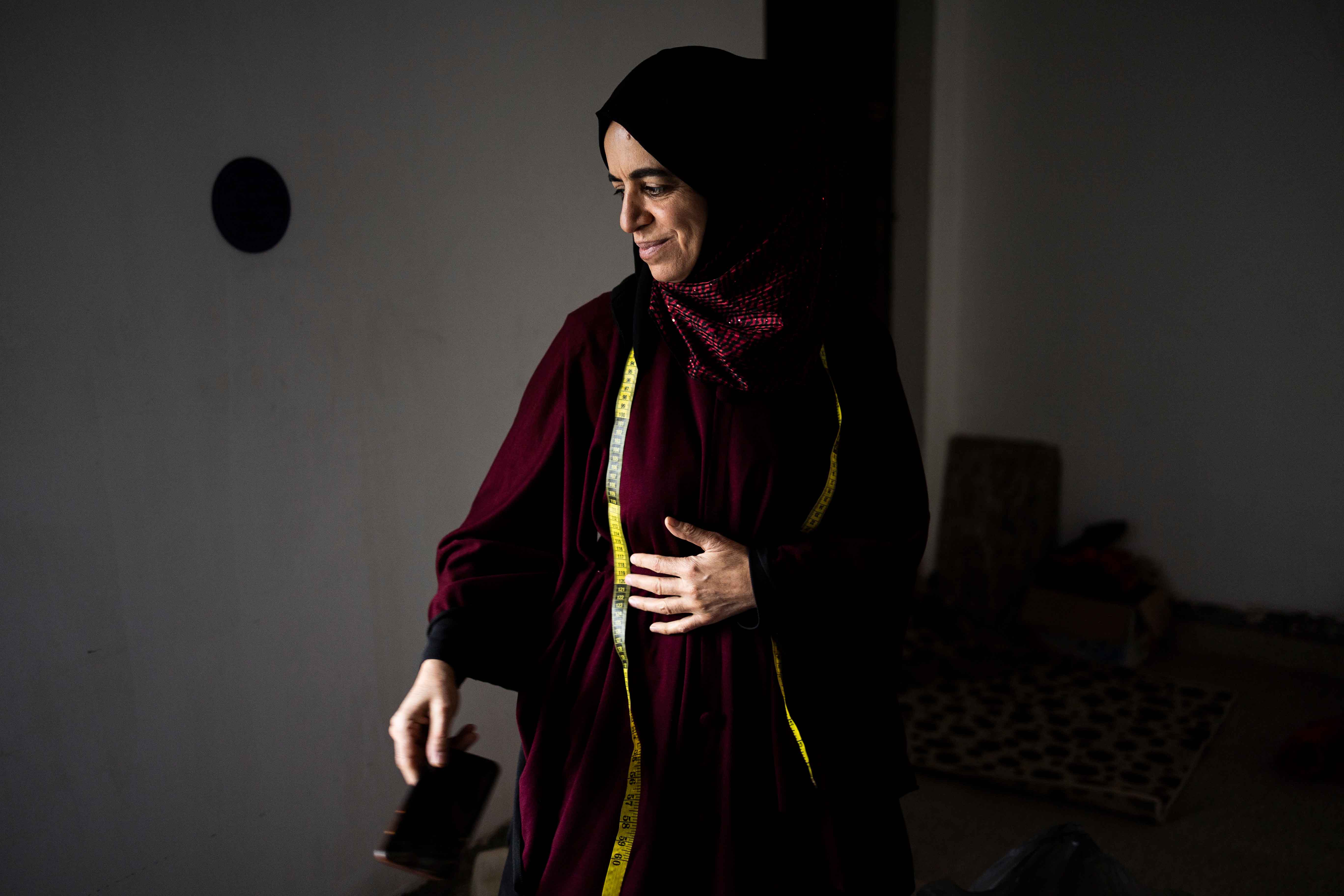
Eventually, Guchin’s husband gave her her own sewing machine as a gift. The machine proved essential for their family throughout the Iranian sanctions of the late 80s and 90s. And Mhabad grew up watching her mother sew all their family’s clothes, while also cultivating the seed of an idea for what she wanted to do with her own life.
In 2003, Mhabad opened Number 1 Tailor. She had one employee then, but slowly she grew her customer base and her business. By the time Mhabad received the EDF grant in 2021, she had five employees. And with the help of the EDF funding, she was able to hire five more. “I’m planning on growing my business to 20 employees next year!” she said.
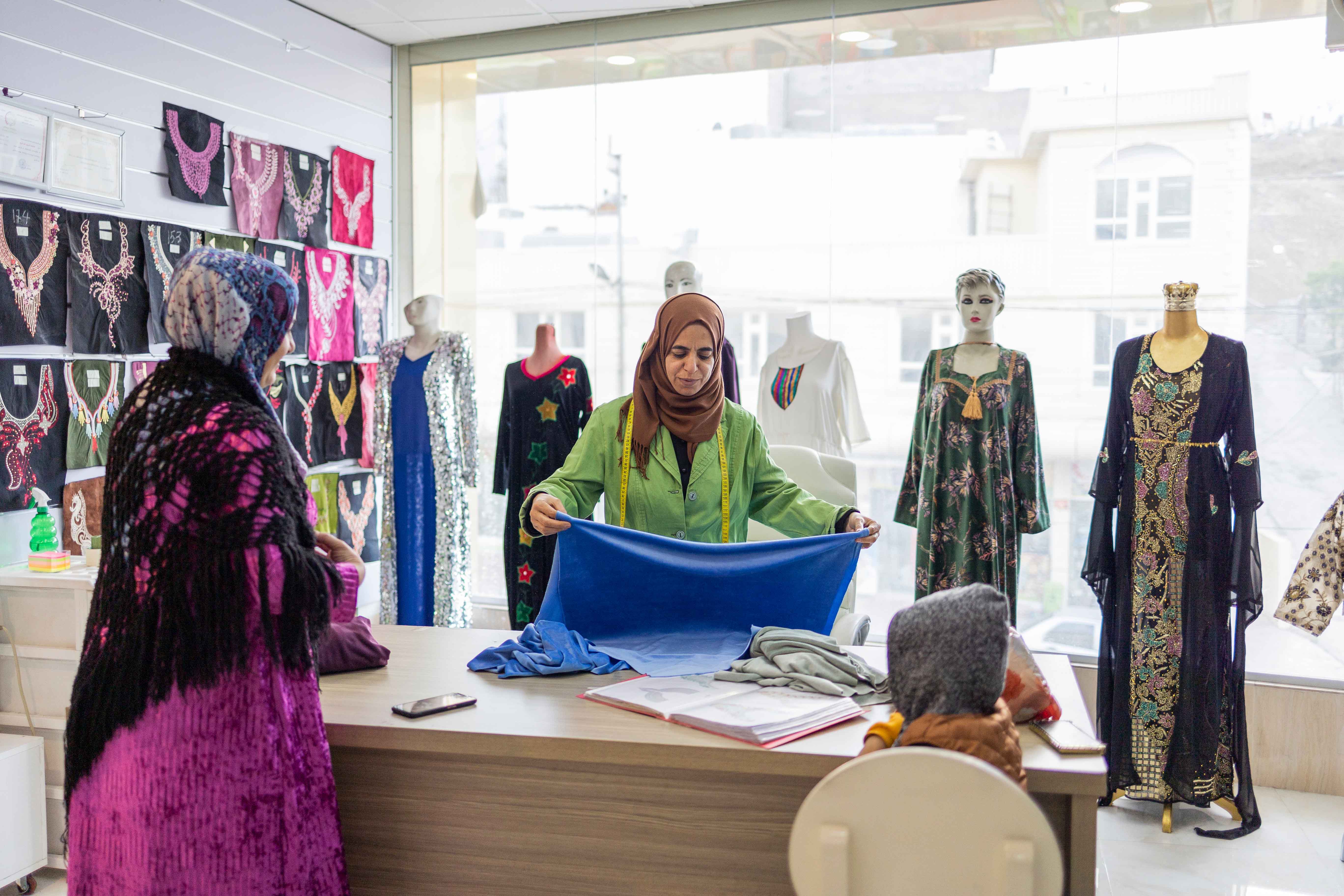
Beyond the growth of Number 1 Tailor’s workforce, Mhabad strives to give back to her community, sourcing her materials from a local bazaar, and pointing out that “everyone benefits when we buy things Made in Iraq.” In the evenings, Mhabad also offers tailoring classes and mentorship to those hoping to start their own businesses.
Diversifying her offerings as a seamstress, businesswoman, and educator has been key to Mhabad’s success. Her ability to adapt was essential after the Covid-19 pandemic shut down Sulaymaniyah in 2020. Mhabad was forced to close the shop’s doors for 6 months. But instead of stopping production, her staff pivoted to sewing masks for the Hewa Oncological Hospital free of charge. And eventually, they started producing masks to be sold in stores around the city.
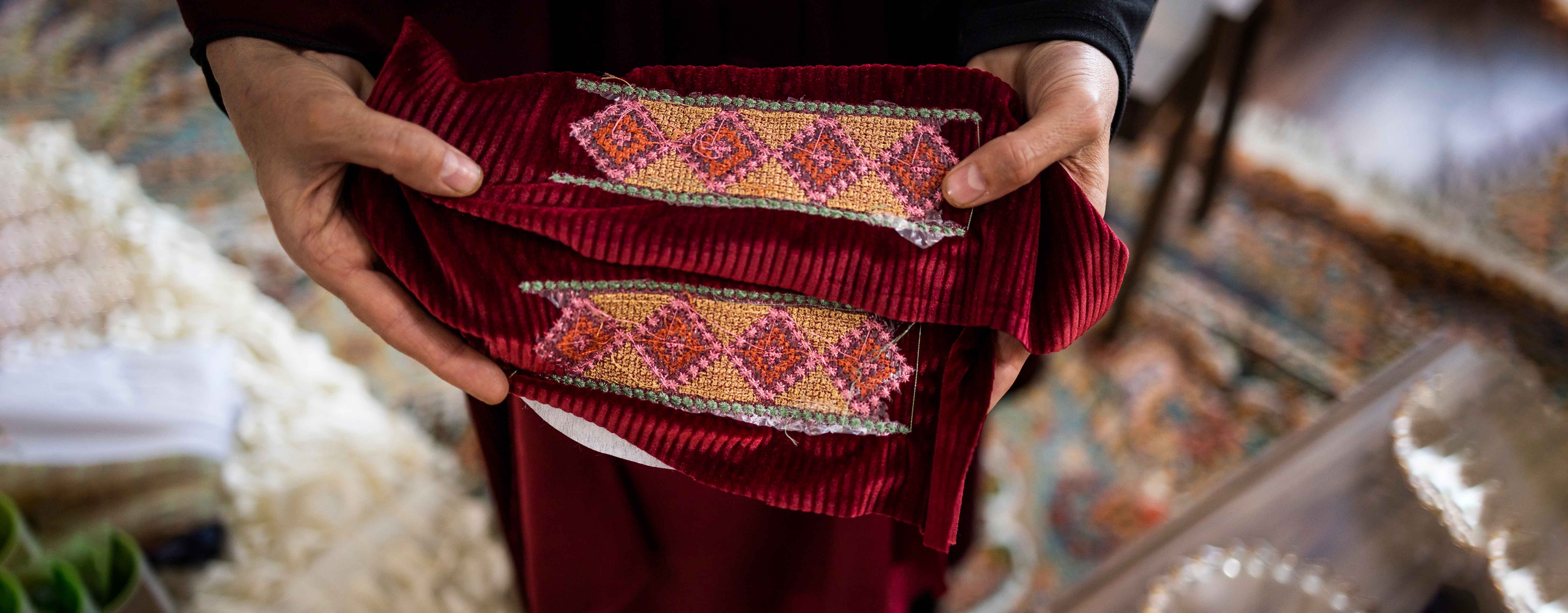
Throughout 2020, Number 1 Tailor was able to do just enough business to keep the shop afloat, without laying off a single employee.
In the months since, the $22,000 EDF grant they received was essential in helping kickstart the business as it emerged from that slow period. Mhabad bought 3 tailoring machines, a sewing machine, an embroidery machine, and a labeling machine. To get the word out about the shop’s new products, she hired a social media manager who created the instagram handle @bargdrwy.number1. All the new equipment and the exposure helped Mhabad double the business she was seeing before the grant.
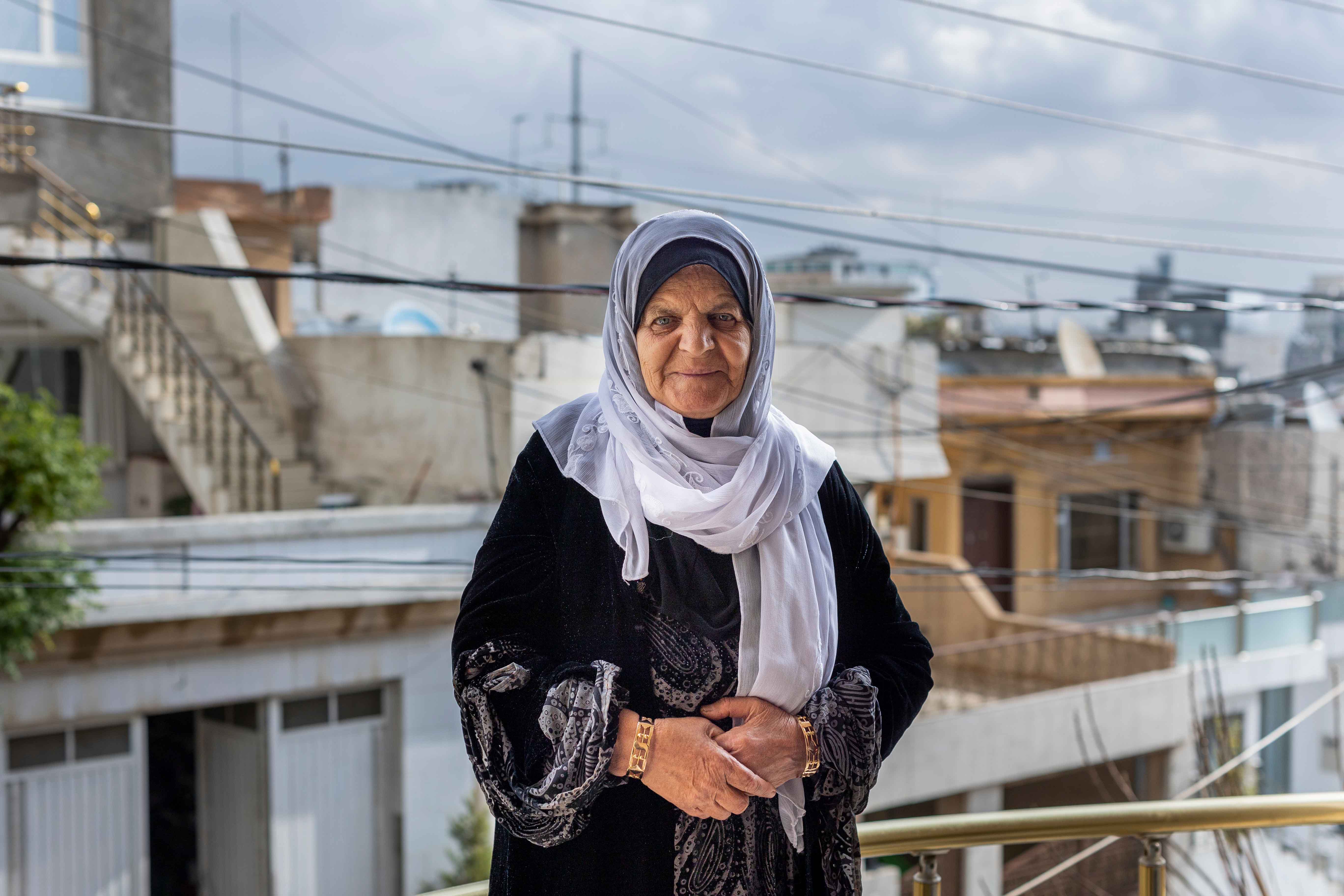
One day in the shop, Mhabad leaned across her desk in the front room and listened to the custom request of a client as the staccato surge of a sewing machine whirred in the background. Colorful spools of thread were arranged on the wall beside the shop’s large, bright windows. Fabrics of various textures and colors were passed from hand to hand as the garments moved through the various stages of production.
The shop’s workers talked about how the benefits of their employment extend well beyond their paychecks— citing the camaraderie and support they’ve found in their colleagues. In the workshop, they diligently carried out their duties: cutting the patterns to hand off for hemming, sewing, and embroidery.
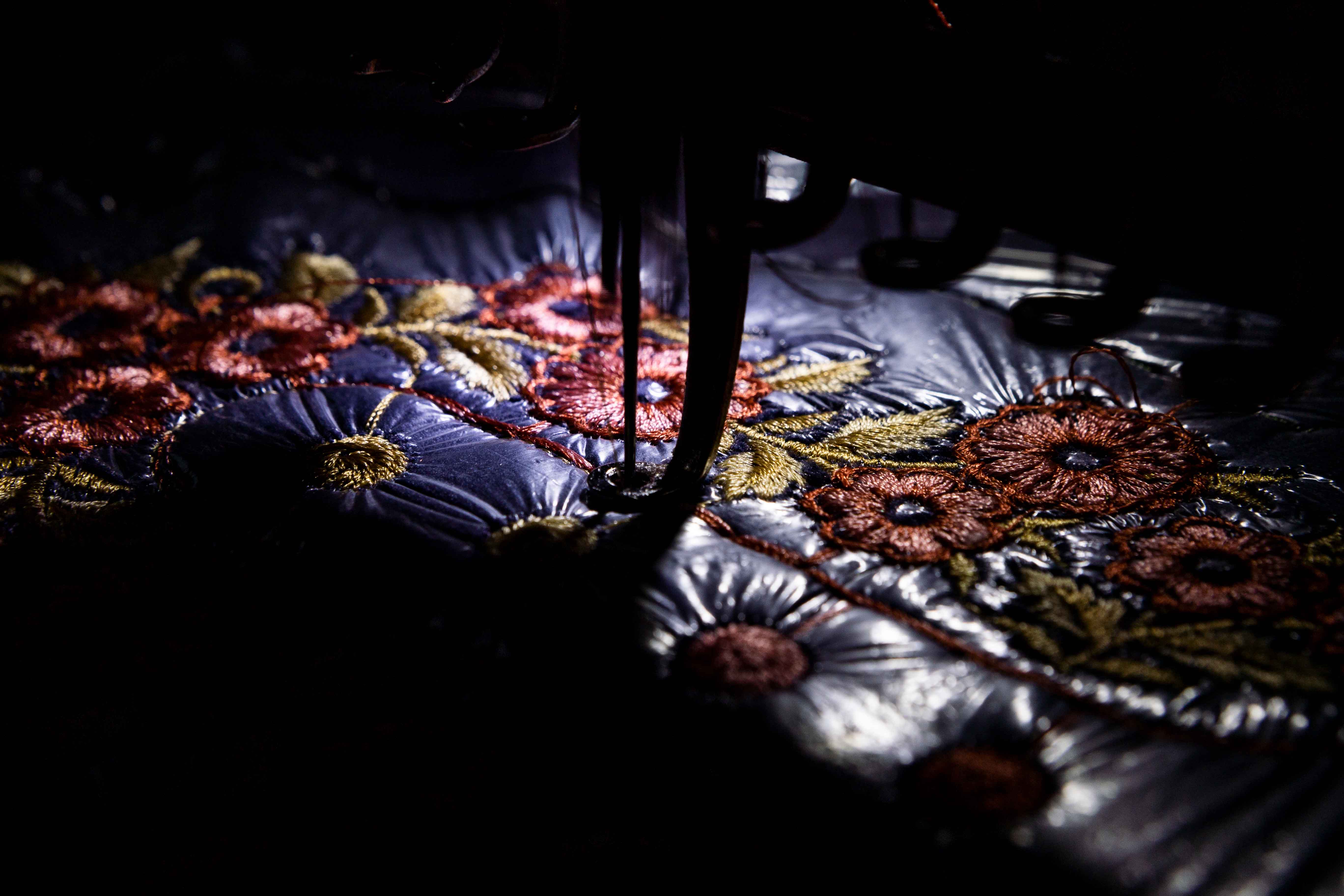
Renas Omer, 28, has worked as a seamstress at Number 1 Tailor for a year, and she talked about how her income supports her five-person household. Renas stood behind her sewing machine, carefully aligning the plush velvet fabric of a green belt before closing the seam.
“It’s about more than a paycheck,” she said. “I’m getting skills, I’m making friends. I have a social life now.”
The women in the shop sometimes joke that even if Mhabad couldn’t afford to pay them, they would still want to come in, just so they could be together.
“If you work because you need to, of course you won’t enjoy it,” Mhabad said, “But if it’s your passion it’s not difficult. I enjoy it everyday, especially when I see the difference it makes for my employees.”



